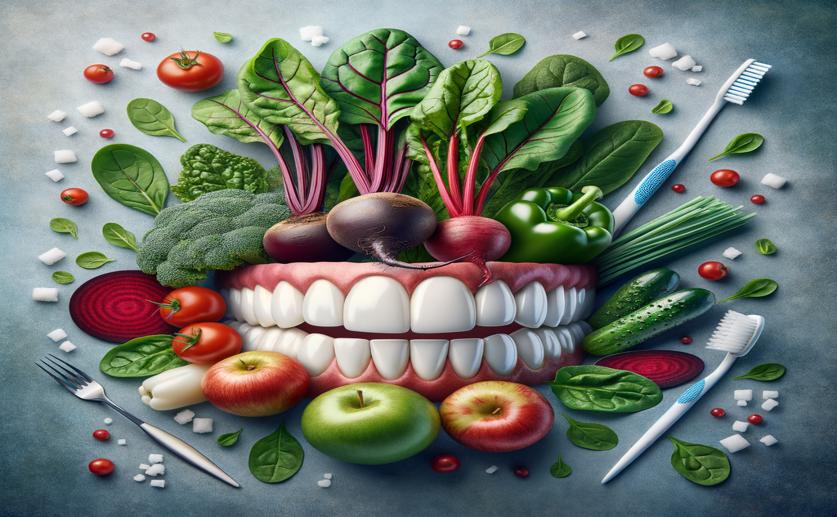
How Dietary Nitrate Boosts Oral and Overall Health: A Review
Jim Crocker
13th May, 2024

Image Source: Natural Science News, 2024
Key Findings
- Study at Newcastle University finds dietary nitrate, like in beets, boosts oral health
- Dietary nitrate changes mouth bacteria, increasing pH, and reducing sugar damage to teeth
- It also lessens gum inflammation, which can help prevent gum disease and related health issues
References
Main Study
1) Effects of dietary nitrate supplementation on oral health and associated markers of systemic health: a systematic review.
Published 11th May, 2024
https://doi.org/10.1080/10408398.2024.2351168
Related Studies
2) Microbiome Associated with Severe Caries in Canadian First Nations Children.
3) Antimicrobial effect of acidified nitrite on periodontal bacteria.
Journal: Oral microbiology and immunology, Issue: Vol 16, Issue 4, Aug 2001
4) Tongue Microbiota and Oral Health Status in Community-Dwelling Elderly Adults.



 8th April, 2024 | Jim Crocker
8th April, 2024 | Jim Crocker